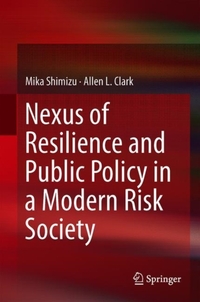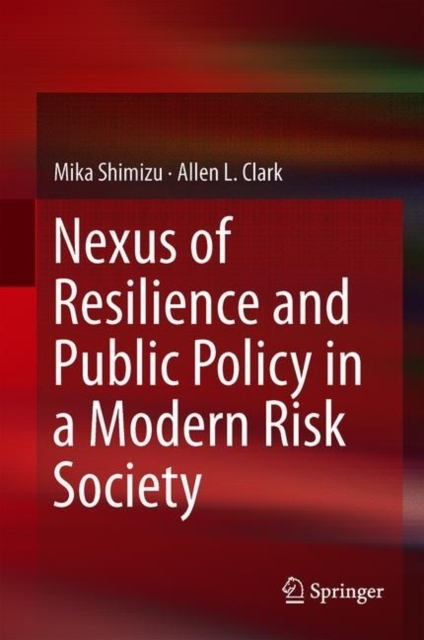This is the first book to articulate resilience-based public policy for a constantly changing, complex, and uncertain risk society. Its primary focus is on operationalizing resilience, i.e., on incorporating elements of resilience in public policy in the context of our modern risk society.While there is a wealth of literature on resilience and disaster risk management, there are few publications that focus on the nexus of resilience and public policy, resulting in gaps between various fields and public policy for resilient societies and disaster risk management. In response, this book integrates the latest theoretical insights on public policy and resilience and the latest practical analyses of case studies such as the Tohoku Disaster (Great East Japan Earthquake) in 2011 and Hurricane Sandy on the North American East Coast in 2012 to provide policy tools for future resilient societies and disaster risk management. The recent disaster cases illustrate that our changing, complex and uncertain risk environment requires far more resilience-based public policy through co-production of knowledge than is normally required for conventional disasters. By linking various fields and public policy, the book articulates a resilience-based public policy, i.e., the incorporation of resilience into various entities by designing and implementing ¿linkages.¿ These include national-to-local linkages, linkages between different entities such as scientific communities and decision makers, and linkages between financial, human, and information resources. Thus, the nexus of resilience and public policy presented in this book aims at better public policy to face a changing and complex risk society, together with fundamental uncertainties at regional, national, and local levels around the world.

- : 9789811073618
- : Engels
- : Hardcover
- : 145
- : februari 2019
- : 454
- : 235 x 155 x 15 mm.
- : Bedrijfseconometrie; Besluitvormingsmanagement; Management en managementtechnieken; Overheidsinstelling; Politieke economie; Regionale overheid, staatsoverheid en andere lokale overheden; Regionale studies; Risicobeoordeling; Sociale dienst en sociale dienstverlening; Veiligheidssystemen en brandalarmsystemen
